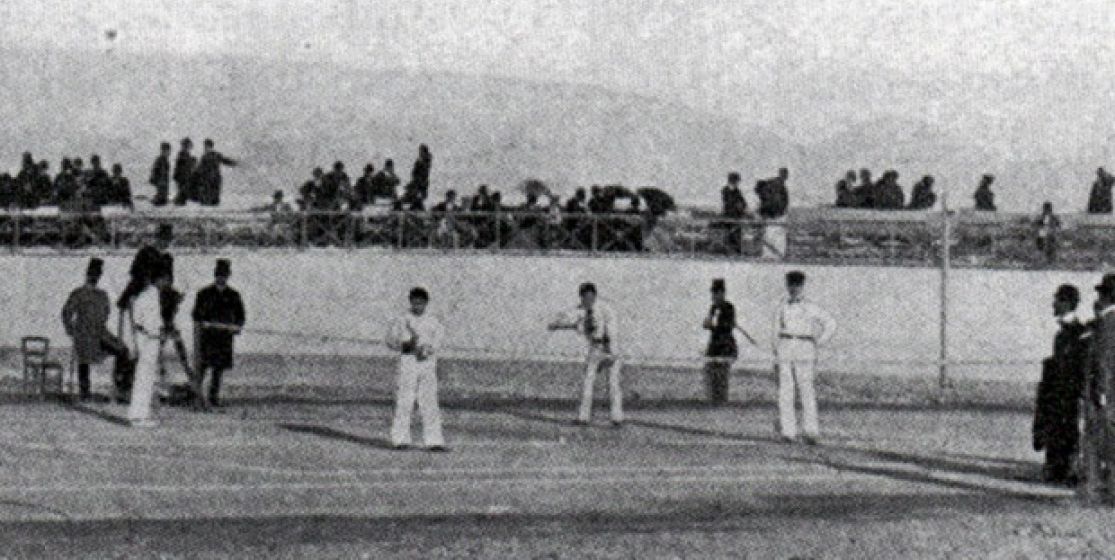As the Rio Olympics are approaching, the stories of the most glorious champions are resurfacing. In the tennis Hall of fame, John Pius Boland is somehow always forgotten. In 1896, in Athens, he became the first player to win a gold medal in the singles and the doubles, when he never should have taken part in the Olympic Games in the first place.
After all, since the first Olympic Games of the modern era, nothing has really changed in the world of tennis. If the we’re worried today because of an increasing number of withdrawals and forfeits - which come along with more or less valid excuses - we weren’t even sure, in 1896, to have enough players to actually organize a tournament. To the point where the organizers didn’t hesitate to call a player at the last minute to fill in the gap, in the same way that you would invite a friend to play as a goalkeeper on a five-a-side pitch on a Tuesday evening. However, sometimes, this good friend turns out to be an excellent player, surprising everyone from the start. A nice surprise, that’s exactly how John Pius Boland, an amateur tennis player who somehow managed to win the first two gold medals, in the singles and the doubles, of the Olympic Games, can be described. Yes, chance works in mysterious ways.
From Dublin to Bonn
John Pius Boland was born on September 16th, 1870 in Dublin with a solid gold spoon in his mouth. Growing up in one of the richest catholic families of Ireland, the young John was given the best education there was. His journey quickly led him to England, at Oxford, to be precise. In October 1885, Boland flew to Bonn, Germany, and started writing a very precious diary. A diary in which he kept on writing during his olympian saga, and which was only rediscovered in 1994 ! As soon as he arrived in Germany, John Boland informed by the Oxford Union Society - a student club at Oxford - that a project looking to rehabilitate the Olympic Games was under way. Thrilled by the idea, Boland asked to meet Konstantinos Malos, a young Oxford student, and member of the Olympic Games organization committee, before starting, in March 1886, a tour of Europe in which he was supposed to be in Athens before the start of the competition. After a few weeks of travelling with his good friend Alfred Pazolt between Munich, Vienna and Patras, the two companions arrived in the greek capital, where they intended to attend, as spectators, the contest organized by their friends. In his diary, Boland speaks about the food he eats there, the comfort of his hotel room but not once does he mention tennis.
From the hotel to the podium
On April 6th, 1896, in the evening, John Boland had dinner with tennis player Dionysos Kasdaglis, who convinced him of taking part in the olympic tennis tournament, which was missing a thirteenth and last player. Boland accepted, while he hadn’t been playing tennis in Bonn. He explains in his diary that the courts are frozen and used for ice-skating, and that anyhow, he prefers this sport rather than golf and cricket. But as the tournament started on April 8th, the Irishman didn’t have any racquets or shoes. If he quickly managed to find a basic racquet on the market of Athens, John couldn’t find any adapted shoes. He played all of his matches in leather shoes with small heels. Boland himself admitted that he wasn’t really bothered, as his opponents weren’t confirmed tennis players also, as he explained it in his diary.
One of them was a Serbian weightlifter and wrestler, another one was a hammer thrower and another one an 800 and 1500 meters champion. In any case, without being a champion, John Boland managed to defeat all of his opponents in the singles, to start with, beating…Dionysios Kasdaglis in the final (6-2 6-2), the man who had convinced him to enter the tournament. In the doubles, Boland played with the man he defeated during the first round of the singles, the German Friedrich Traun. Together, they once again defeated Dionysos in the final (6-3 5-7 6-3). Boland’s incredible story, who turned out to become a member of Parliament, inspired numerous myths, especially among the Irish separatists. The tales that he told himself in his diary finally proved that he never asked for the British flag to be replaced by the Irish flag during the official ceremony. In the end, Boland is nothing less than the first olympic champion in the history of tennis. And that’s not bad already.






